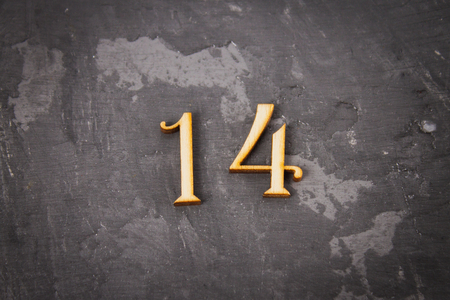The Rich Heritage of British Tea Culture
There’s something almost alchemical about the way tea has steeped itself into the very fabric of British life. To truly understand its role in daily energy cleansing rituals, we must first journey through time, tracing the origins and evolution of this beloved beverage. The story begins in the grand drawing rooms of Georgian England, where tea was not merely a drink but a social event—a symbol of sophistication and status. As porcelain cups clinked and conversation flowed, tea bridged gaps between classes, weaving itself into the tapestry of British society. Fast forward to today, and you’ll find that same comforting ritual alive and well in living rooms up and down the country. Whether it’s a builder’s brew on a rain-soaked afternoon or an elegant Earl Grey at elevenses, tea continues to offer Brits a moment of pause, a chance to reset both mind and mood. It’s no exaggeration to say that the enduring charm of British tea culture lies in its ability to blend tradition with everyday wellbeing—transforming an ordinary cuppa into a subtle act of energy cleansing amid modern life’s hustle and bustle.
2. The Tea Ritual: A Daily Pause
In the fast-paced landscape of British life, the simple act of brewing and savouring a cup of tea serves as a collective exhale—a culturally ingrained pause that punctuates the day with intention. Far beyond mere hydration or habit, the daily tea ritual is woven into the fabric of British society as a cherished moment for stillness, reflection, and gentle rejuvenation. Whether it’s the mid-morning “elevenses” or the sacred late-afternoon “cuppa,” these rituals create space to recalibrate energy, both individually and communally.
The Role of Tea in Everyday Mindfulness
Tea time invites Britons to step back from digital distractions and relentless schedules. The process itself—boiling the kettle, warming the pot, steeping loose leaves or a classic bag—becomes a mindful practice. Each stage encourages presence, turning what could be a routine task into an opportunity for grounding and mental clarity. For many, this daily pause serves as a practical form of energy cleansing, helping to release stress and welcome a refreshed perspective.
Moments of Stillness Across the Day
| Tea Ritual | Time of Day | Cultural Significance |
|---|---|---|
| Morning Brew | Before work/school | Sets intentions for the day; fosters calm before busyness |
| Elevenses | Around 11am | Mini-break to restore focus; often shared with colleagues or friends |
| Afternoon Tea | 3-5pm | A restorative interlude; marks transition from work to leisure |
| Bedtime Cuppa | Evening | Promotes relaxation; symbolises winding down and letting go of worries |
The Social & Emotional Rejuvenation of Tea Time
The beauty of these rituals lies not just in personal solace but also in their social dimension. Sharing tea becomes an unspoken invitation to connect, listen, and support one another—a subtle yet profound method for collective energy cleansing. In this way, British tea culture transcends its colonial legacy and commercial branding to become a powerful tool for everyday resilience and wellbeing.

3. Afternoon Tea and Energy Cleansing Traditions
In the heart of British tea culture, afternoon tea stands out as more than just a meal; it is a cherished ritual that offers both symbolic and practical avenues for daily energy cleansing. Traditionally served between three and five o’clock, afternoon tea has evolved into a moment of intentional pause—a social and personal reset woven into the fabric of British life. The act of gathering around a table, sharing light foods such as finger sandwiches, scones with clotted cream, and delicate pastries, is not merely about sustenance but about creating a harmonious environment that encourages relaxation and gentle reconnection.
The symbolic significance of these small, thoughtfully prepared portions cannot be overstated. They invite participants to slow down, savour each bite, and engage in mindful eating—an understated yet powerful tool for grounding oneself amidst the bustle of modern life. Moreover, the tradition of calm conversation that accompanies afternoon tea serves as a form of emotional detox. It provides space for reflection, gentle humour, and the kind of supportive dialogue that can quietly dispel negativity and replenish one’s inner reserves.
This ritualistic approach to afternoon tea transforms it into a subtle form of energy cleansing. By stepping away from daily pressures and immersing oneself in an atmosphere of comfort, courtesy, and culinary delight, participants often emerge refreshed—both socially reconnected and personally realigned. In this way, the British afternoon tea tradition artfully bridges the gap between conviviality and self-care, turning an everyday practice into an accessible ritual for restoring balance and fostering well-being.
4. Herbal Infusions, Modern Blends, and Mindfulness
The British tea scene has undergone a remarkable evolution, shifting from a simple cuppa at 4pm to a more nuanced exploration of flavours, wellness, and mindful ritual. While the classic English Breakfast and Earl Grey retain their loyal followings, contemporary preferences now embrace herbal infusions—think chamomile, peppermint, or rooibos—and artisan blends that reflect both global influence and local innovation. This diversity is not just about taste; it plays a crucial role in energy cleansing rituals and personal well-being.
From Tradition to Innovation: A Taste for Well-being
Modern Britons are increasingly conscious of how their daily brew affects their mood and clarity. Herbal infusions, for example, are prized for their caffeine-free properties and reputed health benefits: chamomile for calm, peppermint for digestion, and ginger for its warming vitality. Even classic blends like Earl Grey are being reimagined with floral or citrus twists to suit individual needs and preferences.
Comparing Popular British Tea Choices and Their Benefits
| Tea Type | Main Ingredients | Perceived Benefits |
|---|---|---|
| Earl Grey | Black tea, bergamot oil | Mental clarity, gentle lift |
| English Breakfast | Robust black tea blend | Traditional comfort, steady energy |
| Chamomile Infusion | Dried chamomile flowers | Relaxation, stress relief |
| Peppermint Infusion | Peppermint leaves | Aids digestion, refreshes mind |
| Artisan/Seasonal Blends | Varies—herbs, spices, botanicals | Bespoke wellness effects, sensory pleasure |
The Mindful Tea Moment: A British Approach to Energy Cleansing
Savvy Brits have turned tea-drinking into a mindful practice—taking a deliberate pause to engage the senses and recalibrate their mental state. Whether it’s steeping loose-leaf herbs or savouring a smoky Lapsang Souchong in solitude, the act becomes a small but significant ritual of self-care. In our fast-paced world, these tea breaks offer more than just hydration; they serve as anchors of calm and clarity amidst daily hustle. Ultimately, by choosing teas that align with one’s emotional or physical needs, modern British tea drinkers transform an age-old custom into a personal tool for energy cleansing and holistic well-being.
5. Tea Etiquette and the Energy of Connection
When one thinks of British tea culture, images of dainty cups, porcelain teapots, and perfectly cut sandwiches spring to mind. Yet beneath these charming surface rituals lies a sophisticated web of unwritten rules—what we call tea etiquette—that does more than simply dictate how to stir one’s brew. These social codes form the backbone of civility and connection, subtly cleansing the emotional and social energies that flow between individuals.
The Subtle Power of Politeness
In Britain, tea is rarely just about the drink itself. The act of offering a cup—whether at home or in the workplace—is an invitation into a moment of shared calm. From waiting for everyone to be served before sipping, to passing milk and sugar with a gentle smile, these small gestures create a harmonious social dance. Each polite exchange is like a soft reset button for group dynamics, diffusing tension and fostering mutual respect.
Creating Safe Social Spaces
Tea etiquette establishes boundaries that feel safe and predictable. For instance, it’s customary to avoid controversial topics until after the first few sips, allowing participants to settle into a comfortable rhythm. This measured approach tempers emotional energies and gently cleanses away stress or conflict that may linger from earlier interactions. In essence, the tea table becomes a sacred space where kindness takes precedence over discord.
Connection as Cleansing Ritual
Perhaps most profoundly, the ritualised nature of tea drinking encourages mindfulness—a collective pause in the bustle of daily life. By adhering to these familiar customs together, Britons renew their bonds and refresh their emotional states. The energy exchanged over tea is not only civil but quietly restorative, serving as an everyday ritual for cleansing both personal and communal spirits.
6. Global Influences and the Evolving British Tea Scene
The tapestry of British tea culture is no longer woven solely from the threads of tradition; it is now enriched by a multitude of global influences, reflecting Britain’s increasingly multicultural society. With communities from Asia, Africa, the Middle East, and the Caribbean settling across the UK, the humble act of brewing tea has become a crossroads of customs and tastes. Modern British tea rituals blend classic Earl Grey and builder’s brew with matcha ceremonies, Moroccan mint infusions, and chai lattes—a testament to both openness and adaptability.
These diverse infusions do more than add flavour; they bring new perspectives on energy cleansing rituals. For instance, the Japanese emphasis on mindfulness in their tea ceremony inspires Britons to approach their own teatime as a mindful pause for resetting energy. Meanwhile, spices from Indian chai or North African herbal blends are embraced for their holistic benefits—warming not only the body but also fostering emotional balance and spiritual refreshment.
This multicultural dialogue encourages Britons to view tea not just as a comforting staple but as an evolving toolkit for daily renewal. The ritual of sharing tea becomes an invitation to explore new ways of connecting—with oneself and others—drawing from collective wisdom to foster resilience in modern life. Whether it’s a solitary cup of green tea in the morning sun or an afternoon pot shared among friends with scones and baklava, these moments are increasingly imbued with purpose: to cleanse, recharge, and harmonise energies amidst life’s relentless pace.
Thus, contemporary British tea culture stands at an exciting intersection: rooted in heritage yet vibrantly open to transformation. The evolving scene signals that energy cleansing through tea need not be bound by strict convention—it can be as dynamic and inclusive as Britain itself. Each cup offers both continuity and renewal, where ancient rituals meet fresh inspiration in a uniquely British synthesis.


